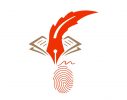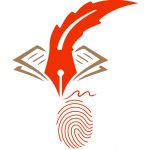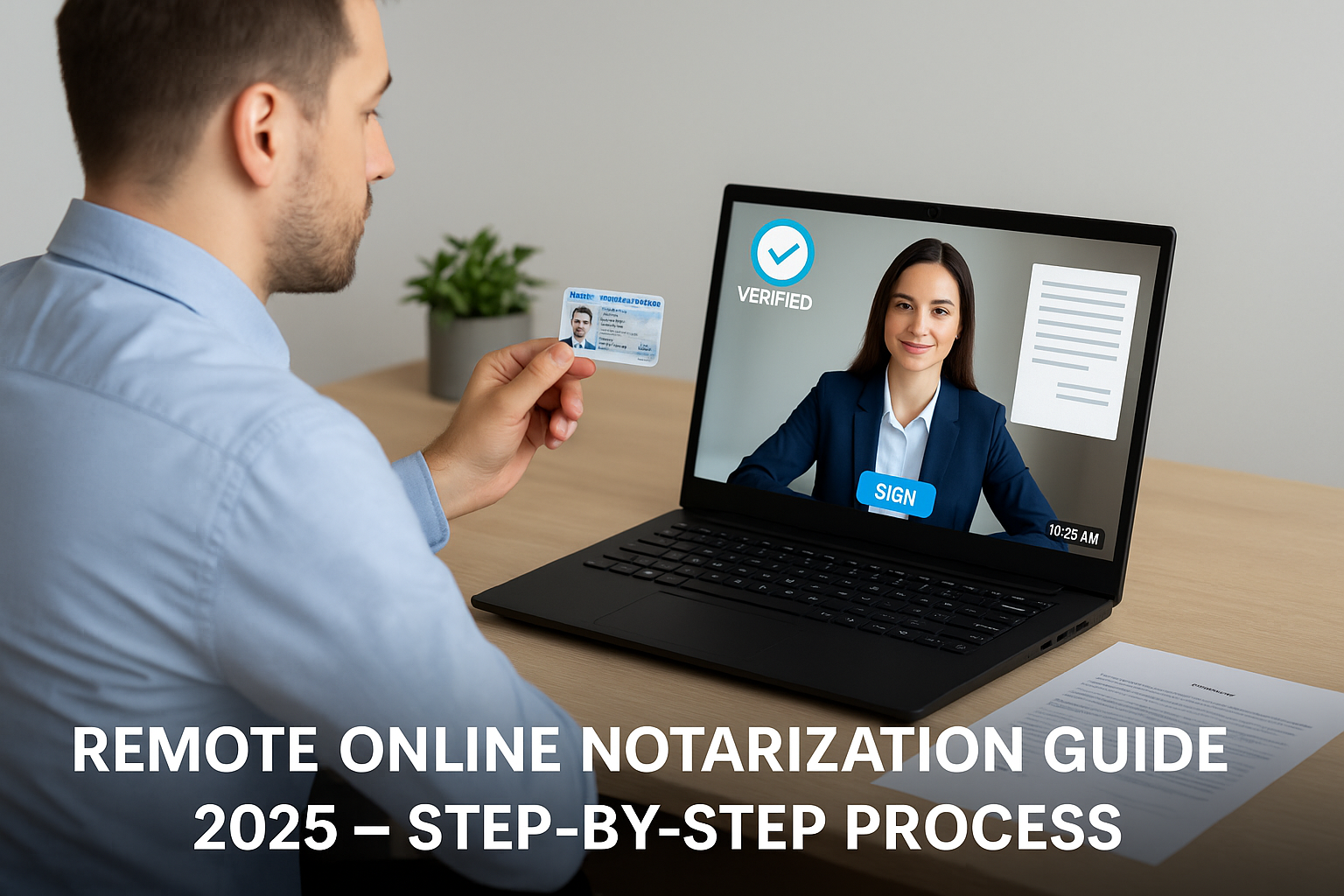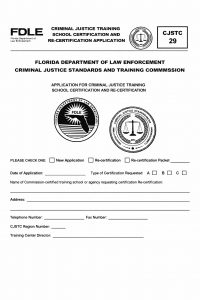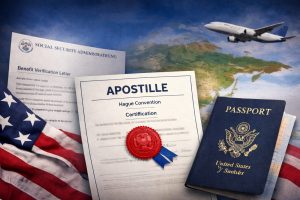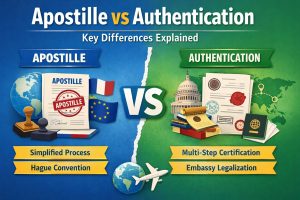Remote Online Notarization (RON) has revolutionized document authentication, allowing you to notarize important papers from anywhere with an internet connection. With 45 states and the District of Columbia now permitting RON as of February 2025, this digital solution has become essential for modern business and personal transactions.
What is Remote Online Notarization?
Remote Online Notarization allows a commissioned notary public to witness document signings using audio-visual technology rather than requiring physical presence. You can connect with a qualified notary public via video call, verify your identity through advanced authentication, sign documents electronically, and receive official notarization without leaving your location.
This innovative process addresses fundamental challenges in our digital world where time-sensitive documents often require immediate attention, and geographical barriers create unnecessary delays in critical transactions.
Why Choose RON Over Traditional Notarization?
Time Efficiency and Convenience
Documents requiring notarization are frequently time-sensitive. Rather than coordinating schedules with local notaries or traveling to physical locations, you can access notarial services instantly through approved platforms. This flexibility particularly benefits busy professionals who need to coordinate notarization around existing commitments.
Enhanced Security Features
Remote online notarization platforms capture comprehensive digital records of each transaction, including detailed audit trails that document every action with precise timestamps. This technological approach creates an immutable record providing superior protection against fraud compared to conventional paper-based processes.
Cost-Effective Solution
The elimination of travel expenses, reduced paper usage, and decreased storage requirements creates substantial savings. For businesses processing multiple documents regularly, these benefits compound significantly while improving operational efficiency through streamlined digital workflows.
The Complete RON Process
Getting Started
Begin by selecting a state-approved platform that complies with your jurisdiction’s specific regulations. Popular platforms such as NotaryCam, BlueNotary, and Notarize each offer unique features while meeting stringent state requirements for security and authentication.
Document Preparation
Upload your complete document to the secure platform, ensuring all necessary information is filled out correctly before scheduling your session. Most platforms provide document review tools to help identify any missing elements that could delay the notarization process.
Identity Verification Process
The identity verification process forms the cornerstone of RON security through multiple authentication layers:
Government ID Verification: Present a valid government-issued identification document such as a driver’s license, state ID, or passport. Advanced credential analysis technology validates the security features and authenticity of your identification.
Knowledge-Based Authentication (KBA): Answer personal questions drawn from public records and credit databases covering information only you would reasonably know, such as previous addresses or loan amounts. Most platforms require achieving at least 80% accuracy within two attempts.

The Live Video Session
During this recorded interaction, the notary public confirms your identity by comparing your live appearance with your submitted identification. They review the document for completeness, ensure you understand what you’re signing, and verify that you’re acting voluntarily without coercion.
Electronic Signing and Completion
Electronic signing occurs under the notary’s direct observation through the video connection. Advanced e-signature technology captures your digital signature while maintaining a complete audit trail. The notary then applies their official electronic seal and signature, completing the notarization immediately.
Technology Requirements
Successful RON requires reliable technology infrastructure. Your device must include a functioning camera and microphone capable of providing clear audio and video communication. Internet connectivity should be stable enough to support real-time video streaming without interruptions.
Good lighting helps the notary clearly see you and your identification document, while a quiet environment free from distractions facilitates clear communication throughout the process.
Legal Framework and State Compliance
As of January 2024, 44 states have enacted Remote Online Notarization legislation, representing 88 percent of the United States. Recent additions include California, Massachusetts, and Illinois, all implementing RON frameworks in 2024.
Interstate Recognition provides crucial legal foundation for RON acceptance across state boundaries. Properly completed remote online notarizations performed by notaries from states with effective RON laws remain valid and legally acceptable in other states when conducted according to the commissioning state’s requirements.
The proposed Securing and Enabling Commerce Using Remote and Electronic Notarization Act (SECURE Notarization Act) aims to establish nationwide standards, creating uniform requirements across all states and simplifying the process.
Common RON Applications
Real Estate Transactions: Deeds, mortgage documents, and property transfers frequently utilize remote notarization, especially when parties are located in different geographical areas.
Financial Documents: Banks and financial institutions increasingly rely on RON for loan applications, beneficiary changes, and power of attorney documents.
Legal and Business Documents: Attorneys use RON for affidavits, contracts, and estate planning documents, enabling them to serve clients regardless of location while maintaining proper notarization requirements.
International Use: Many documents notarized through RON may require additional authentication through apostille services, particularly when being submitted to foreign governments or institutions.
Security and Fraud Prevention
RON platforms implement sophisticated security measures often exceeding traditional notarization protections. Multi-factor authentication combines possession factors, knowledge factors, and inherence factors to create robust identity verification.
Complete session recordings provide unprecedented transparency and accountability, documenting the entire notarization process. Some notaries undergo additional background check procedures to ensure their eligibility to perform remote notarizations.
Digital audit trails capture comprehensive data about every transaction aspect, including timestamps, IP addresses, and user actions, creating superior fraud protection compared to traditional paper-based methods.
Costs and Timing
RON fees typically range from $25 to $50 per notarization, varying by platform and notary. Creating your account and requesting notarization can be completed within minutes, while the actual session duration depends on document complexity but usually ranges from five to thirty minutes.
Contact Notary Plus More today for expert consultation and support services to help you successfully complete your remote online notarization needs with confidence and ease.
